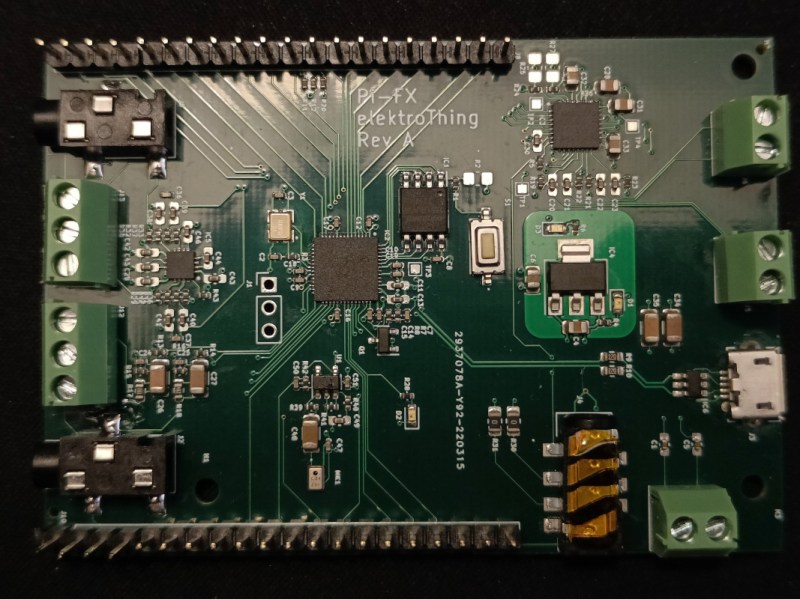The Raspberry Pi, although first intended as an inexpensive single-board computer for use in education, is now ubiquitous in electronics communities. Its low price as well as Linux platform and accessible GPIO make it useful in many places outside the classroom. But, if you want to abandon the ease-of-use in favor of an even lower price, the Raspberry Pi foundation makes that possible as well with the RP2040 chip, commonly found on the Pico. [Jason] shows us one way to make use of this powerful chip by putting one in an audio digital signal processing board.
While development boards are available for this chip, [Jason] has opted instead for a custom PCB which he designed himself and includes an integrated headphone amplifier and 3.5 mm audio jacks. To do the actual DSP work, the RP2040 chip uses three 12-bit ADC channels and 16 controllable PWM channels. The platform is also equipped with the TLV320AIC3254 codec from Texas Instruments. With all of this put together, he has a functioning open-source platform he calls the DS-Pi.
[Jason] has built this as a platform for guitar effects and as a customizable guitar amp modeler, but with a platform that is Arduino-compatible and fairly easy to program it could be put to use for anything involving other types of music or audio processing, like this specialized MIDI-compatible guitar effects platform which is built around the same processor.
















Has anyone put a 2040 on an arduino uno style board yet?
They have indeed.
I wonder the same. An 2040 on an Ardunio/Genuino Uno/Mega compatible board would be really useful. It could use all these third-party shields/hats.
I think there is an Arduino Nano form factor version of 2040.
https://thepihut.com/products/arduino-nano-rp2040-connect
There’s the RP2040 Stamp Carrier on Tindie (https://www.tindie.com/products/arturo182/rp2040-stamp-carrier/) which follows the Uno form factor/pinout.
Thank you, Jack! That’s exactly what we were looking for, I think.
Wish you a happy easter! 🙂🐰
Bye, Joshua
If someone is working on that, I hope they are thinking carefully about the interface for the I/O processors.
Pimoroni has an uno-format carrier for the RP2040 Stamp board: https://shop.pimoroni.com/products/rp2040-stamp-carrier
It would help to clarify the RP2040 has those 12 bit ADCs on chip already. You could say “channels” implied it, but since it’s a DSP board it sounded like those higher res ADC might have been added, but they are always present.
What sets this board apart is the head phone jack with amplifier, the audio codec, and the screw terminals.